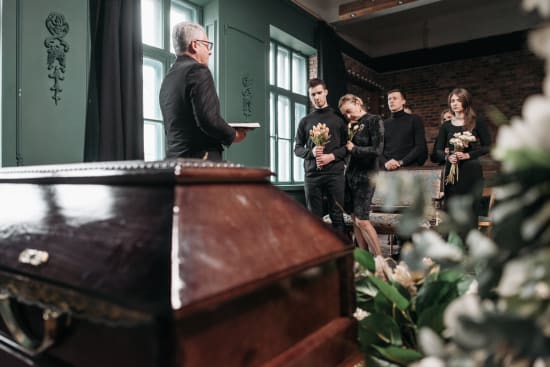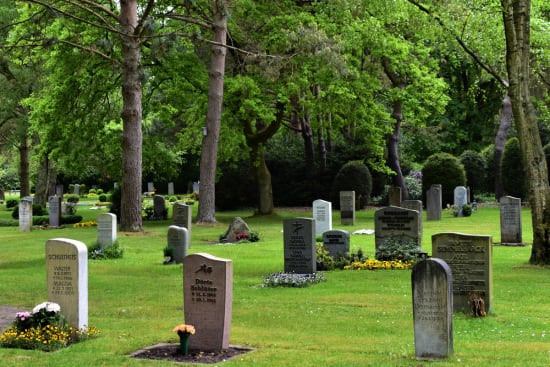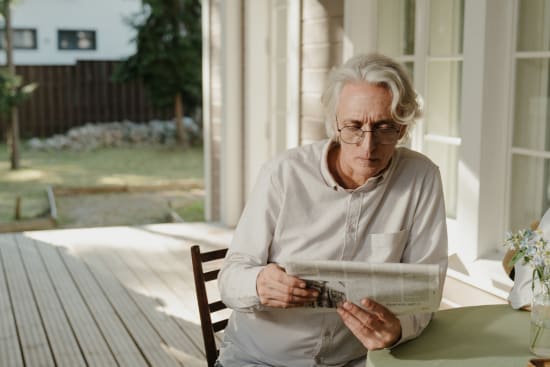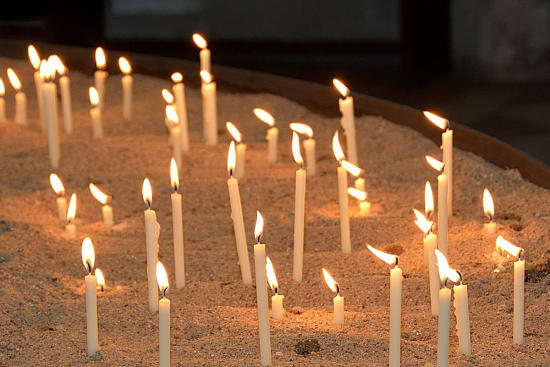How do you deal with a death as next of kin?
Which official first steps are urgent? How do you organize a funeral? Church or secular service? And can
you choose the cemetery? Here you will find the answers.

Official first steps
There is a lot to do after the death of a loved one. Friends and family need to be informed, and the funeral has to be organized. In addition, there are a lot of official
steps that need to be carried out.
You will find helpful checklists and information on the types of funerals in
Switzerland at www.ch.ch/en/death.
As the formalities are subject to different regulations from
municipality to municipality, it is best to contact the
municipality of residence of the deceased in order to
speak with the
relevant officials in the registry and burial offices.

Organizing a funeral
The following suggestions should help you to organize the burial:
- Find out whether the deceased had any special wishes in a last will or testament.
- Decide on the type of funeral (burial or cremation) and the place of funeral.
- Visit the registry or burial office and take the necessary documentation with you.
- Decide who you wish to invite to the reception afterwards and organize this.
- Order the flowers for the funeral hall or church as well as for the restaurant (if required).

Choice between a church or secular service
You can decide between church or secular service.
- Church service: when deceased persons are buried in a cemetery, this is often associated with a religious service, a short memorial service or another type of funeral service. Arrange with the parish office for the time.
- Secular service: if the deceased was not a member of a religious community, you may choose to have a secular service. This may be led by a family member or a speaker from a non-confessional community. Make sure that the deceased has not expressed any wishes in this regard (e.g. last will, testament) and also respect any religious beliefs of the departed.

Choice of cemetery
You are free to choose the cemetery. However, you are only officially entitled to be buried in the cemetery in the
parish where you were last registered before death.
A cemetery is not obliged to accept outsiders from the
parish for burial. Make enquiries at the parish cemetery
of your choice and obtain an authorization if necessary.
If the deceased person has expressed wishes, these should
be taken into account. Otherwise, a place of rest to which the
bereaved have an affiliation is recommended.

Death notices & announcements
There is no need to have any death notices or announcements.
These are purely formalities in order to inform relatives,
friends, etc. of the death. If they are sent and/or posted
before the funeral, they are automatically
assumed to be an invitation to attend the funeral service.
The following details are generally required:
- first name, last name (also maiden name) and possibly a photo of the deceased;
- date of birth and death or age plus place of death;
- short information (e.g. died unexpectedly ... or: following a long illness ...);
- short poem or quotation;
- list of those left behind (e.g. spouse, children and their families);
- place and date of service with exact address.

Impressive last ritual of farewell
The service is a highly charged event emotionally. Try to make is
as respectful but also as beautiful as possible.
This includes, for example, flowers, some information about the life of the deceased, music (organ, favorite music of the deceased, a live singer, choir, etc.), poems or Bible texts.
There is also the custom of placing a large container
filled with sand and a box of long, thin candles.
The mourners can then
take a candle, light it and place it in the sand.
More about sadness & comfort
Comfort and mourning: flowers that express sympathy
When words fail, flowers offer silent comfort in difficult times.
How to deal with a death as an acquaintance?
How do you express your condolences? Is there a dress code for funerals? And do we bring flowers to the funeral? Find out more here.
Writing a letter of condolence
When writing a letter of condolence, it is extremely important to sound authentic and to write from the heart.
What flowers to offer in case of a bereavement?
What flowers to give to the bereaved or for the funeral? Do they have to be necessarily white? Are there typical funeral flowers? And what about other religions? Find out more here.
If flowers are not wanted
Sometimes the bereaved do not want any flowers and instead request donations to a charity that was particularly close to the heart of the departed.
How do you deal with a death as next of kin?
Which official first steps are urgent? How do you organize a funeral? Church or secular service? And can you choose the cemetery? Here you will find the answers.
How to organize the planting of the grave?
Grave maintenance contract or DIY? What should you think about when doing it yourself? Here you will find answers - and a small list of easy-to-care-for plants.








